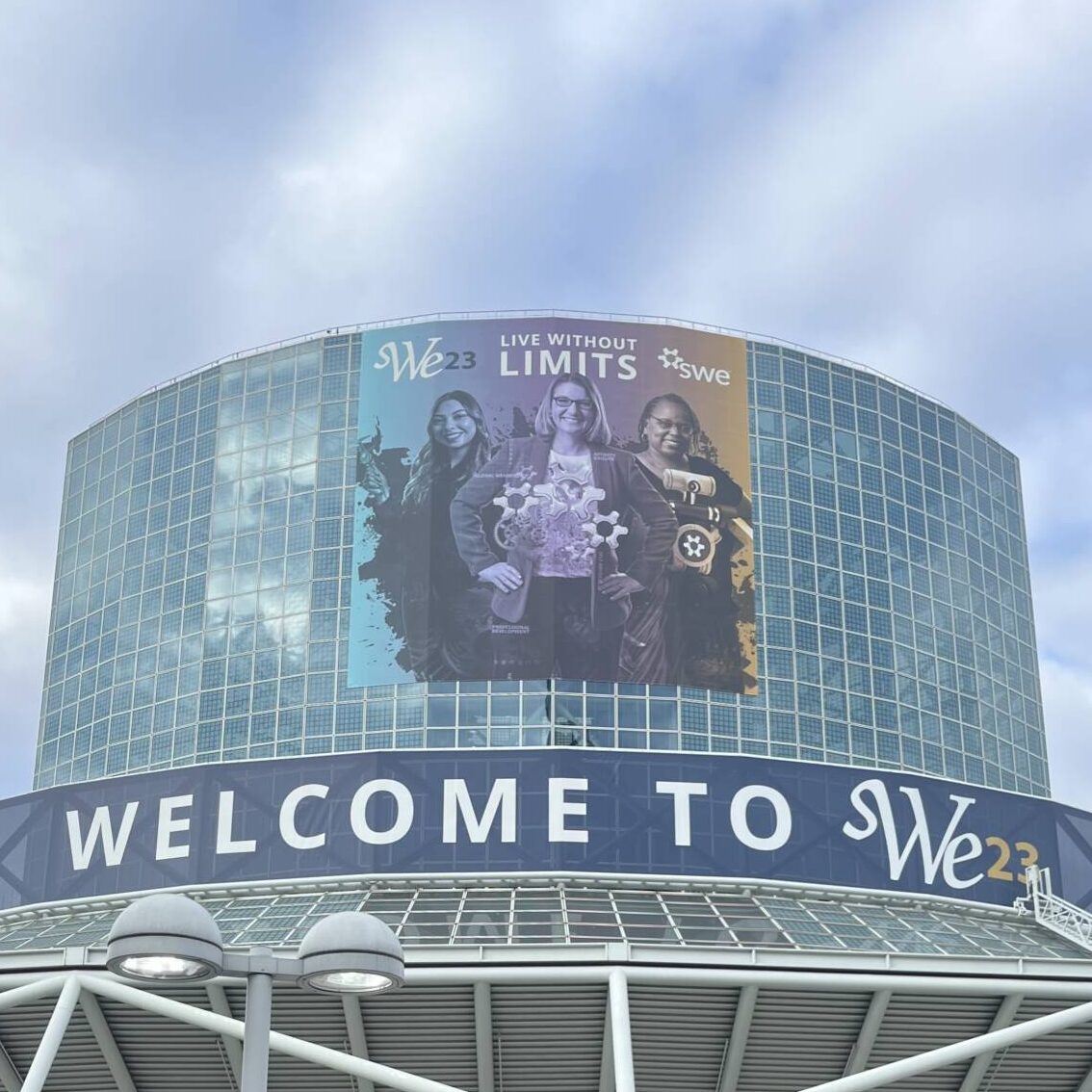When I attended my first conference, I was overwhelmed by the number of events—from keynote speakers and lightning talks, to career fairs and research presentations. Over time, through attending several conferences, I learned how to navigate these spaces strategically and make the most of the few days I had at each one. Conferences are an opportunity to connect your academic interests to real-world communities and open doors for future opportunities. From resume databases to poster sessions, conferences can open doors to new research and career opportunities.
Here are my top tips for getting the most out of your next conference:
- Upload Your Resume Early
Most conferences have an official resume database that is shared with conference sponsors. Partner companies often search these databases to identify potential candidates ahead of time, sometimes even scheduling interviews or inviting students to exclusive networking events during the conference. Uploading your resume early is one of the easiest steps to get your resume directly in front of a recruiter and can lead to opportunities even before the event begins.
- Prepare for the Career Fair
Many conferences include a career fair, though the focus can vary. Some are designed to market companies to students and professionals, while larger national conferences may host fairs specifically for hiring. Always bring an updated resume and a few printed copies in case; while most recruiters now prefer digital versions, many still accept paper copies. Before arriving, research which companies will be present (this is usually listed on the conference website) and prepare a short, conversational introduction that connects your work or interests to what they do. Career fairs often run for limited hours, so it is important to research ahead of time to ensure you get face time with the organizations that matter most to you. Having a plan helps you make the most of your conversations with recruiters and ensures you can ask about current openings that fit your goals.
- Plan Your Schedule
Conference programs can feel overwhelming with so many events happening at once. Take time beforehand to review the full schedule, highlight sessions or panels that align with your interests, and build a personal agenda. One of my biggest recommendations for first-time conference attendees is to go to at least one talk outside of your main area of study. Hearing from top experts in different disciplines can introduce you to new perspectives and spark unexpected ideas of your own work. Conferences are one of the few opportunities where you can learn directly from leading professionals across multiple fields, so take advantage of it!
- Engage with Student Posters
Poster sessions are one of the most valuable but underrated parts of a conference. Talking with student presenters not only gives you a greater understanding of how undergraduates conduct research, but it also shows you what counts as conference-level research. Ask questions about their process, challenges, inspirations, and the tools or methodologies used to produce their research. These conversations can give you practical takeaways for your own research or broaden your sense of what’s possible at the undergraduate level.
- Networking Before and After the Conference
One of the greatest takeaways from a conference is broadening your network and the best networking doesn’t only happen in-person. Posting your attendance on LinkedIn to indicate your participation helps recruiters and fellow attendees find you. Many companies will filter conference hashtags to identify attendees for invite-only mixers or networking receptions. Creating a short post or adding a tag to your bio will increase your visibility and make connecting easier once you’re there. During the conference, jot down names and contact information for recruiters or professionals you want to follow up with. Afterwards, send a quick follow up or a thank you message within a few days. This can become an avenue for future conversations or meaningful connections.
Conferences only last a few days and are extremely fast-paced, but with some preparation, they can be one of the most rewarding parts of your academic or professional journey. Whether you’re presenting research, looking for employment, or just wanting to hear from the top professionals of a particular field, following these tips can help you make the most of your time and build lasting connections. I hope you find these tips helpful as you approach your next conference! Good luck!
— Shannon Yeow, Engineering Correspondent


